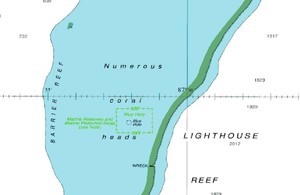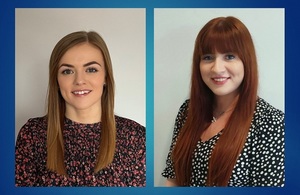An official report has found that Kids Company operated a “high risk business model”, characterised by a heavy dependence on grants and donations, reliance on a key individual for fundraising, low reserves, and a demand-led service.
The regulator has made a formal finding of “mismanagement in the administration of the charity” over its repeated failure to pay creditors, including its own workers and HMRC, on time.
The publication of the statutory inquiry into the charity follows the conclusion in 2021 of High Court proceedings, in which the Official Receiver was unsuccessful in its attempt to disqualify the charity’s trustees and CEO as company directors. The Commission has had regard to the High Court judgement and agrees with it that there was no dishonesty, bad faith, or inappropriate personal gain in the operation of the charity.
The report finds the charity operated a high-risk business model, having rapidly expanded its operations. The report finds the trustees allowed expenditure to increase without a secure stream of income to cover increased costs or mitigate an unexpected fall in fundraising. Combined with the low level of reserves, this approach, unusual for a charity of its size, made Kids Company vulnerable to external pressures.
The report notes that a higher level of reserves may have allowed the charity to avoid liquidation, to wind up in a more orderly fashion, or to merge with another charity.
Delayed action to address financial and operational risks
The report concludes that the trustees were aware of the risks arising from the charity’s operating model for years and had recognised the need to make changes. But the inquiry concludes that they should have acted sooner during the period of the charity’s growth to improve its financial stability, for example by building up reserves, paying off its debts, thereby strengthening its cash flow position, and controlling the rate at which the charity was expanding.
The charity’s records and record keeping
The inquiry highlights concerns around Kids Company’s records relating to decision-making about direct spending on beneficiaries. Some of the records were destroyed at the time of its collapse. It also appears that other records may not have been created in the first place. The inquiry acknowledges that the trustees were not responsible for, and indeed attempted to stop, the destruction of records when they became aware of it happening during the charity’s final days of operation. Nonetheless, the report is clear that the destruction of records fell “below the standards the Commission would expect from a charity”.
Due to the limited material available, there was “insufficient evidence” for the inquiry to be satisfied that the charity’s significant expenditure on a relatively small number of beneficiaries was either justified or in the charity’s best interests. Available records show that around 25 beneficiaries had spent on them an average of over £1,700 per month between January and July 2014. The Commission notes that, whilst such decisions were within the discretion of trustees to make, the charity might have been able to help a greater number of children had spending on this ‘top 25’ been reduced.
The regulator also found that the charity’s approach to reporting the scale of individuals who benefited from its work – which it reported amounted to 36,000 – could have been more transparent, and that its methodology for calculating such figures “should have been clearly articulated wherever cited”.
Leadership factors
The report notes that the board lacked expertise in the field of psychotherapy and youth work, potentially limiting challenge of executive decisions. However, as the High Court highlighted in its judgement the trustees were skilled professionals and had collectively identified the need for the board to be strengthened and diversified, and that at the time the charity closed, a plan was in place to recruit additional trustees with such skills.
The report highlights that the founder CEO had been in post since 1993, and its chair had served since 2003, noting that “rotation amongst a charity’s trustees allows for an injection of new ideas and approaches and for challenges to the way in which a charity operates”. The report acknowledges that the CEO was due to perform a different role as part of wider changes, when the charity closed.
Background to the inquiry’s findings and conclusions
The Commission’s inquiry opened in 2015. The regulator put aspects of its investigations on hold while the Official Receiver brought proceedings against the former CEO and trustees, a process that ran from 2017 until February 2021, when the High Court found in their favour.
The Official Receiver was unsuccessful in its attempt to disqualify the charity’s trustees and CEO as company directors and the court rejected the claim that the charity’s CEO was a de-facto director. The Commission has had regard to the Court’s findings on the matters under its jurisdiction.
Helen Stephenson, Chief Executive of the Charity Commission, said:
Kids Company’s sudden closure was a significant event, not just for those involved in and supported by the charity, but for wider society. It served as a defining moment in the relationship between charities and the public on whom they ultimately rely, highlighting a sharper scrutiny of those running charities in the media and Parliament.
Following other inquiries and the conclusion of director disqualification proceedings in the courts, our job as regulator has been to calmly assess the evidence available, to scrutinise the charity’s trustees for their compliance with charity law and regulation in how they ran their organisation, and to set out lessons for other charities.
We found that the charity’s operations and finances made the charity – and by extension its beneficiaries – more vulnerable to decisions of individual grant-makers and donors. The charity’s repeated failure to pay creditors, including its own workers and HMRC, on time, was mismanagement.
Issues for the wider sector
Kids Company was unusual, and the particular circumstances of its closure are unlikely to be repeated. However, the Commission highlights that there are lessons for charities, and for the regulator itself, to learn. These include:
Effective board leadership
The High Court judgement states that although the CEO of Kids Company had significant influence, she was accountable to the trustees. The Commission’s inquiry report notes that “a single person holding a senior leadership role in a charity for many years can reduce the level of challenge to long established methods of operating and prevent it from identifying and managing risks that flow from longstanding practice”.
Founders of charities also need to be mindful that a permanent leadership role is rarely in the best interests of a charity. There are other ways of harnessing the passion and talent of founders or charismatic individuals, without their having executive or strategic power and responsibility.
Asymmetric power or influence can lead to unhealthy board or wider organisation dynamics, and ultimately to poor decision making. No charity should be defined by a single individual.
Managing risks associated with innovative approaches
There is no ‘best’ way for charities to deliver public benefit. Diverse and innovative operating models can help keep the sector relevant and dynamic. Problems can arise, though, when a charity’s innovative approach is not balanced by management of the commensurate risks. For all charities, measuring impact should be part of the process of evaluation of whether the approach is effective – particularly where an innovative approach is being adopted.
Planning reserves
There is no single level of reserves that is right for every charity. But trustees should undertake financial planning and recording including maintaining a reserves policy.
Managing growth
Charities should ensure infrastructure, governance and resources keep pace with growth. They should have sustainable income to support their growth and ensure that policies are scaled up to reflect the needs of any expanded or newly introduced beneficiary groups. They must ensure that their governance is robust, ideally with at least one trustee with experience of managing a charity of similar scale on the Board.
The full report, with the wider lessons, is available on GOV.UK.
Ends
Notes to editors:
- The Charity Commission is the independent, non-ministerial government department that registers and regulates charities in England and Wales. Its purpose is to ensure charity can thrive and inspire trust so that people can improve lives and strengthen society.
- The Commission’s inquiry into Kids Company was opened under Section 46 of the Charities Act 2011 on 20 August 2015. The opening of an inquiry gives the Commission access to a range of investigative, protective and remedial legal powers. The scope of this inquiry is set out in the full report.
- In October 2015, the National Audit Office published the outcome of its investigation into the government’s funding of Kids Company.
- In February 2016, the Public Administration and Constitutional Affairs Committee published a report of its inquiry into the collapse of Kids Company
- In February 2021, the High Court ruled on proceedings brought against the directors of Kids Company. The judgement is publicly available.
- In February 2021, following the High Court judgement, the Commission informed the trustees and former CEO that it would not be using its own power to disqualify them as trustees.

